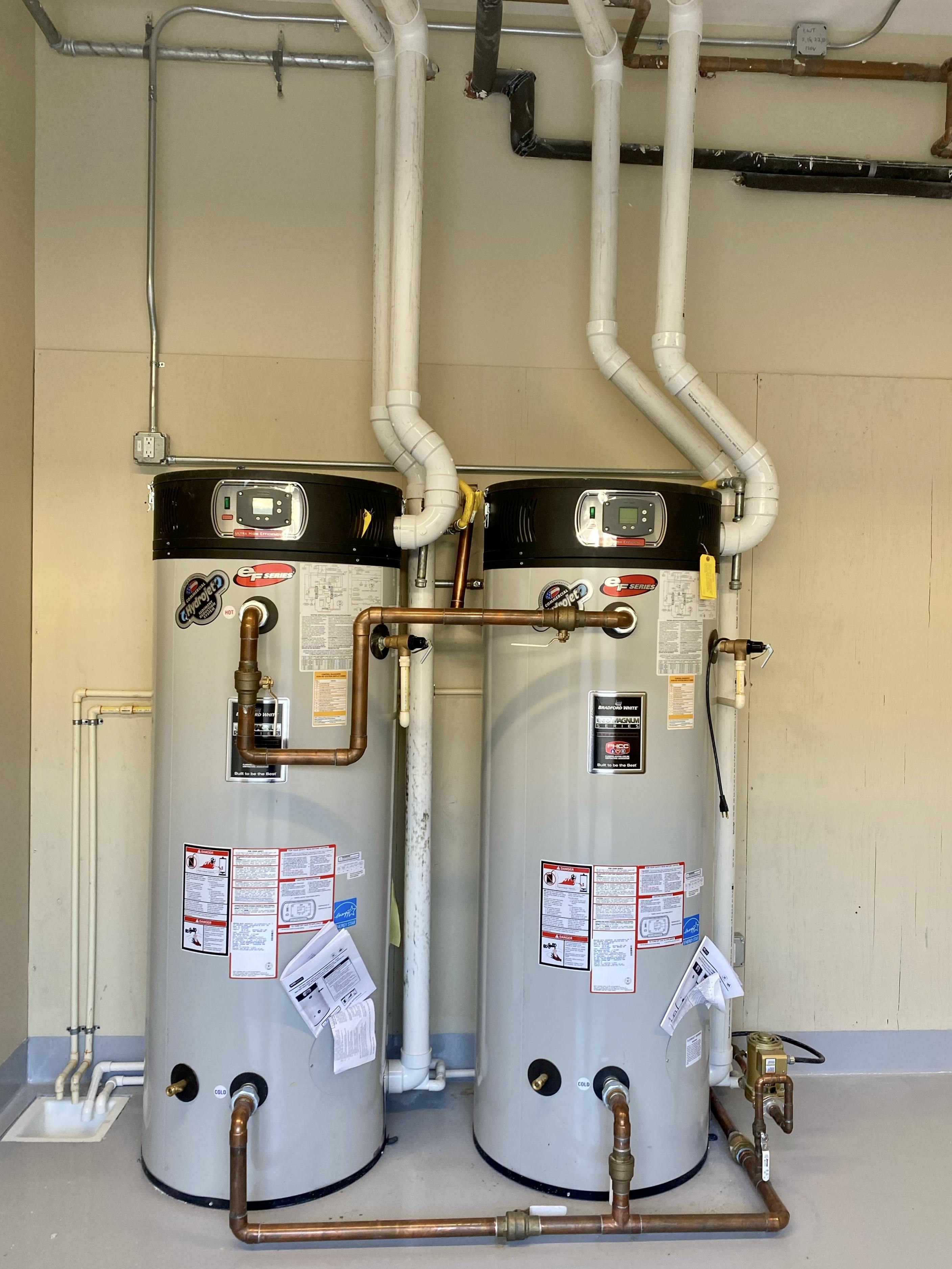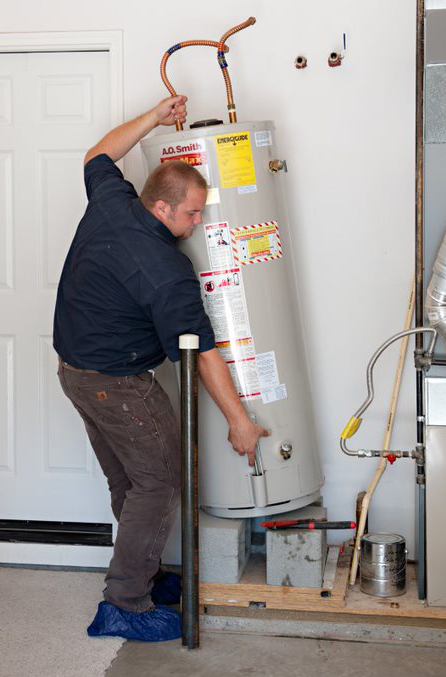How to Pick the Right Water Heater Setup for Your Home
Picking the proper water heating unit installment for your home needs an extensive understanding of numerous variables, including your house's specific hot water needs and the kinds of heating systems readily available. Furthermore, factors to consider around power performance and installation expenses play an important role in the decision-making process.

Examine Your Warm Water Requirements
Analyzing your hot water needs is important for choosing a proper water heating system that successfully satisfies your family demands. To start, take into consideration the variety of residents in your home and their everyday regimens, as these factors considerably influence warm water intake. For example, larger households generally require greater warm water capability for activities such as showers, laundry, and dishwashing.
Determine when your household requires the most warm water simultaneously. Additionally, take into consideration the particular home appliances and components that take in warm water, consisting of washing taps, machines, and dishwashing machines.
It is additionally essential to represent any kind of future modifications in your house, such as extra family members or adjustments in way of living that might raise warm water demand. Examine the energy performance of potential water heater options, as this can dramatically influence long-lasting operating expenses. By extensively evaluating these elements, you can make an enlightened choice that lines up with your warm water demands and promotes reliable power usage in your home.
Discover Various Water Heating System Types
When checking out different hot water heater kinds, it's necessary to understand the various options available and their unique functions. The most usual types include tank hot water heater, tankless water heating systems, heat pump water heaters, and solar water heating systems.
Tank hot water heater are conventional systems that keep a particular volume of warm water, making them appropriate for houses with regular demand. They can run out of warm water during peak usage.
Tankless hot water heater, on the various other hand, warm water on need, supplying a countless supply. They are perfect for smaller sized areas and can be extra energy-efficient, however may need a greater in advance investment.
Heatpump water heating units use electrical power to transfer warm from the air or ground, making them efficient choices in modest climates. They can be extra complex to install and might need extra space.
Lastly, solar hot water heater harness sunshine to warm water, supplying an environmentally friendly alternative. They require a significant first financial investment and are reliant on sunny conditions however can considerably decrease utility prices over time.
Each kind has unique advantages and considerations, making it essential to examine which finest fits your house's requirements and preferences.
Think About Power Efficiency Rankings
Comprehending the numerous kinds of water heaters normally brings about the consideration of their power performance ratings. Power effectiveness is an important consider picking a hot water heater, as it straight impacts your utility bills and the environmental footprint of your family. Hot water heater are generally rated utilizing the Energy Variable (EF) or the more recent Attire Energy Element (UEF) metrics, which measure their efficiency by gauging the power taken in versus the warm water generated.

It is also necessary to evaluate the Power Celebrity certification, which represents that a hot water heater fulfills stringent performance requirements. Selecting a hot water heater with a high power performance score can not only minimize your energy expenses but likewise boost the total convenience of your home, making it an important aspect of the decision-making procedure.
Evaluate Installation Expenses
Assessing installment expenses is a critical action in the selection process for a water heater, as it incorporates not only the rate of the system itself but likewise the expenditures related to its installment. It is necessary to obtain in-depth price quotes from multiple specialists to make certain a thorough understanding of potential expenses. This consists of labor charges, any kind of necessary licenses, and products needed for the setup.
When assessing installation expenses, consider the complexity of the setup procedure. Aspects such as the place of the water heating system, existing pipes framework, and whether the installation involves replacing an old unit or mounting a new system can significantly influence total expenditures. For instance, retrofitting an existing space may incur added expenses compared to a simple setup.
In addition, bear in mind the long-term ramifications of installation prices. Some hot water heater may have higher upfront setup costs however provide better power performance, leading to savings on power expenses in time. Ultimately, a complete analysis of installment prices, combined with an understanding of the system's long-lasting performance, will assist you in making a notified decision that lines up with your budget and requirements.
Testimonial Upkeep Needs
Normal maintenance is essential for ensuring the long life and effectiveness of a water heating unit. This process typically Get the facts entails regular inspections, cleaning, and necessary changes to maintain the unit in optimum working problem. Home owners ought to arrange yearly professional upkeep, which includes inspecting the anode pole, flushing the tank to remove debris buildup, and checking the stress relief shutoff.
For tankless water heating units, maintenance concentrates on descaling the system visit their website to protect against mineral accumulation, particularly in areas with difficult water. Additionally, it is essential to examine and tidy filters consistently to maintain appropriate water circulation.
House owners must also carry out regular visual assessments, looking for signs of leakages, rust, or uncommon noises, which might indicate underlying problems. water heater installation. Frequently testing the temperature level and stress alleviation shutoff is also important, as a malfunctioning shutoff can result in hazardous stress build-up
Last but not least, following the manufacturer's details maintenance standards is essential. These standards often include recommended maintenance periods and details tasks to ensure the system runs successfully and safely. By adhering to proper maintenance procedures, property owners can lengthen their water heater's lifespan and boost its performance, eventually minimizing energy prices and decreasing the possibility of expensive repair work.
Final Thought
Selecting the suitable water heating unit installation requires an extensive assessment of household warm water demands, the evaluation of different kinds of water heating systems, and why not try these out factor to consider of energy efficiency scores. In addition, an evaluation of installment prices and maintenance obligations is important for ensuring ideal performance and longevity. By sticking to these guidelines, homeowners can make enlightened decisions that not just provide to instant needs however also advertise long-lasting energy performance and cost-effectiveness in water home heating services.
Choosing the proper water heating unit installation for your home needs a comprehensive understanding of various aspects, including your household's certain warm water demands and the kinds of heating systems offered.Examining your hot water demands is important for selecting a proper water heater that successfully meets your house demands. Water heaters are normally rated utilizing the Power Element (EF) or the more recent Uniform Energy Variable (UEF) metrics, which measure their performance by measuring the power consumed versus the hot water created.
Some water heaters may have greater upfront setup expenditures but use better power performance, leading to savings on power expenses over time. water heater.Choosing the ideal water heater setup demands a comprehensive assessment of household hot water demands, the evaluation of different types of water heating systems, and factor to consider of power effectiveness rankings
 Monica Lewinsky Then & Now!
Monica Lewinsky Then & Now! Nancy Kerrigan Then & Now!
Nancy Kerrigan Then & Now! Bill Cosby Then & Now!
Bill Cosby Then & Now! Nadia Bjorlin Then & Now!
Nadia Bjorlin Then & Now! Peter Billingsley Then & Now!
Peter Billingsley Then & Now!